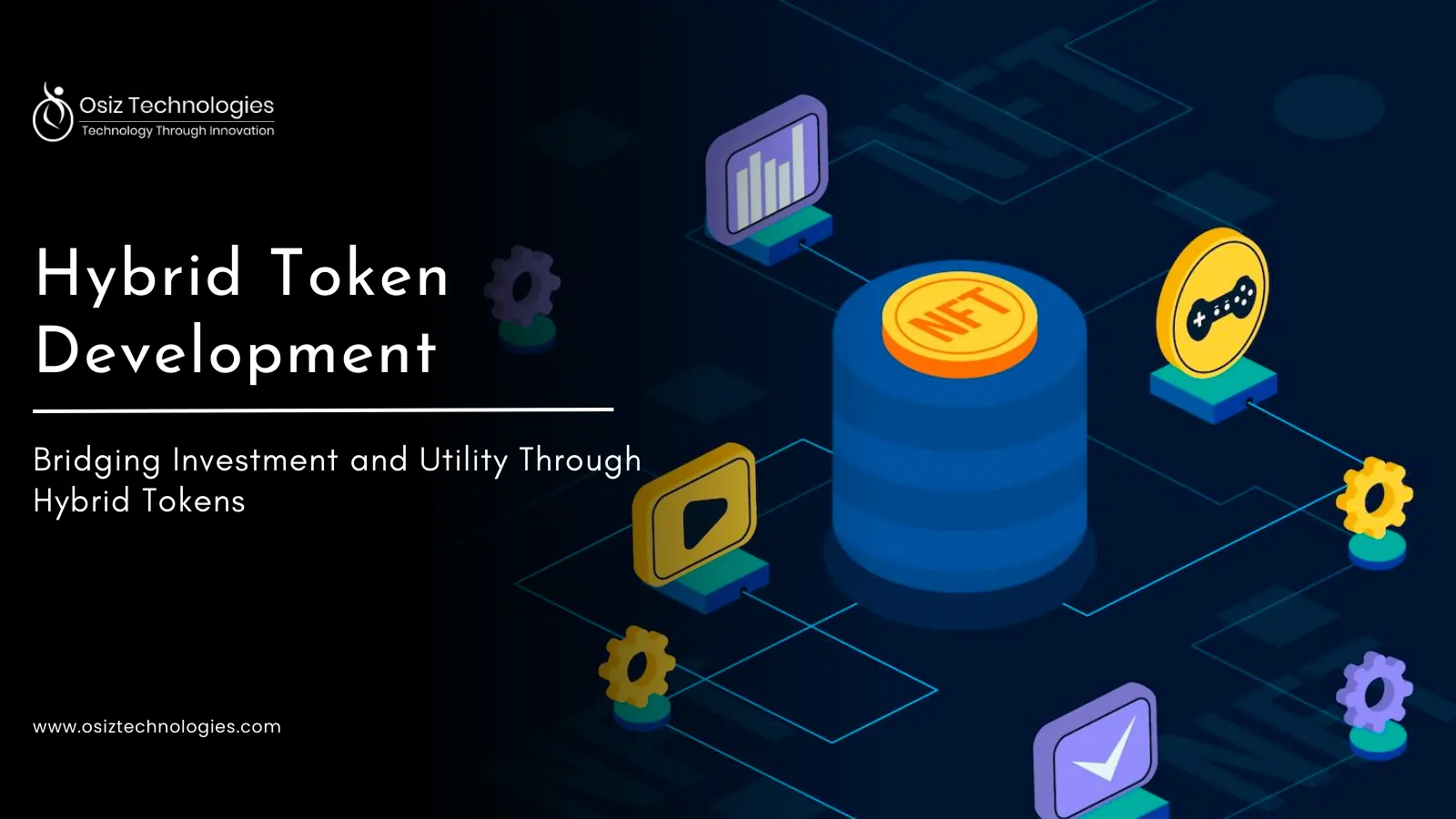AI Agents
AI Agents or Artificial Intelligence Agents, are excellent software programs that allow computers to interact with their surroundings and gather data to make things better. People can use this Artificial Intelligence (AI) as an agent and make them perform tasks efficiently. As a leading AI Development Company, Osiz provides various AI solutions. The AI agent will automatically pose various inquiries to the client, retrieve data from internal records, and provide a solution. It decides whether it can answer the customer's question on its own or forward it to a person based on their responses.
AI Agents For Retail And E-Commerce
Nowadays, many industries started leveraging AI agents to boost their business productivity and sales. However, the same goes for the Retail and E-Commerce sectors. With the use of dynamic pricing tactics, predictively accurate inventory management, and tailored product suggestions, AI agents are completely changing the way that businesses and customers engage. With the use of these tools, companies can analyze enormous volumes of data, spot trends in consumer behavior, and produce insights that improve product offers and assist predict market demands. This influences operational choices that have the potential to provide significant financial gains in addition to customizing the shopping experience to each customer's preferences.
Various Types Of AI Agents For Retail And E-Commerce
There are different types of AI Agents present and here, we list them and reveal their commonness with the retail and E-commerce industries.
Task-Oriented Agents
These agents are intended to accomplish specific objectives, emphasizing effectiveness and efficiency in carrying out predetermined activities. These AI agents are very good at automating check-out procedures, maintaining inventory, and streamlining logistical workflows in the retail industry, which greatly increases operational efficiency.
Deliberative Agents
With models of symbolic thinking at their disposal, these agents use negotiation and planning to accomplish their objectives. They are critical to supply chain management in retail, where cooperation and strategic planning with other agents (suppliers, logistics providers) are vital.
Conversational Agents
Advanced natural language processing technologies are used by conversational agents to mimic lively human dialogues. These agents play a critical role in improving customer service in retail and e-commerce by efficiently and individually responding to questions about product specifications, stock availability, and order status.
Reactive Agents
These are the most basic types of AI agents; they don't remember previous encounters; instead, they operate according to the conditions of their current surroundings. Reactive agents in E-commerce, for instance, can swiftly modify pricing in reaction to real-time sales data or adjust stock levels based on competition pricing.
Model-Based Agents
These agents are especially helpful in partially observable situations because they employ an internal model to comprehend and anticipate their surroundings. These agents could forecast consumer behavior in e-commerce or improve supply chain efficiency by preserving and modifying their states in response to real-time data inputs.
Knowledge-Based Agents
These agents make decisions and offer professional guidance by drawing on a reservoir of organized data and rules. To provide individualized shopping experiences or enhance marketing tactics, these representatives in retail could examine consumer data and industry trends.
Utility-Based Agents
These agents perform in intricate decision-making contexts, assessing several states according to a utility function to maximize results such as revenue or client contentment. These agents may oversee dynamic pricing plans in e-commerce to optimize profits in response to consumer demand and market dynamics.
Learning Agents
These agents are possibly the most sophisticated and perform better over time as a result of experience. Learning agents in e-commerce modify their marketing, inventory control, and consumer engagement tactics in response to shifting market trends and the results of their past behavior.
Important Factors Of AI Agents For Retail And E-Commerce
The AI agents for retail and E-commerce consist of various important factors. It includes three main steps gathering input data, reasoning, action planning, and final execution.
Input: To begin with, this element will capture and process input from different users in textual, visual, and auditory formats. Also, these gathered inputs will help the AI agent to take action and decisions.
Brain: The brain integrates several modules: profiling, memory, knowledge, and planning. The cognitive processes of reasoning, planning, and decision-making depend on these modules. The agent's role and function are defined by the profiling module, which also establishes the agent's goal for a specific task.
Action: This part uses the brain's processes to carry out preprogrammed actions. An LLM-based AI agent for retail and e-commerce can break down difficult tasks into smaller, more manageable steps, each of which is linked to a particular tool from its toolkit. This guarantees accurate and efficient task execution by using the appropriate tools at the right times.
Top Advantages Of AI Agents For Retail And E-Commerce
Operational Cost Reduction: Our AI agents minimize the need for large human customer service teams by automating repetitive back-office and customer interface duties. Teams may concentrate on more intricate and valuable interactions thanks to this automation, which also drastically reduces labor costs.
Increased User Experience: Our LLM-powered AI agents are experts in understanding and processing NPL. That greatly improves the user experience for your customers. Our user experience will be substantially improved by these interactions since they are more organic and sensitive to subtleties, humor, and intent.
Reduced Average Handling Time (AHT): AI agents greatly decrease typical handling times by automating the resolution of routine questions and transactions. This increases productivity and frees up human agents to handle more complicated problems.
Lessen Errors: The accuracy of LLM agents reduces the possibility of mistakes that are frequently made in human procedures, like improper handling of customer data or inventories. Their capacity for highly accurate large-scale dataset analysis facilitates improved decision-making and lowers the likelihood of expensive business errors.
Enhanced Agent Assistance: LLM-powered agents assist human agents by giving them instant access to data, recommendations for actions, and guidance. In addition to increasing accuracy, this support lessens the cognitive load placed on human agents during interactions.
Multiple Language Support: By speaking a variety of languages, LLM agents may assist a wide range of clients, overcoming language hurdles that frequently impede international trade. This capacity guarantees a consistent level of client support across the globe while broadening the market reach.
Steps To Create AI Agents For Retail And E-Commerce
Step 1: Determine Your Objectives
As a first step, you need to determine your objectives. Understand who your target audience is and how to increase your return rates and boost conversion rates. Then, check the availability of your data to support your selected objectives.
Step 2: Choose The Best Libraries and Frameworks
Selecting the appropriate libraries and frameworks for creating an AI agent in the retail and e-commerce sector is crucial. Well, you can use the AutoGen Studio template for library storage easily. Meanwhile, Keras, Tensorflow, and PyTorch will offer the best features for AI development.
Step 3: Choose a Programming Language
Using Python for your AI agent development is one of the greatest choices. Because of its AI readability and libraries, Python would be better. Along with that, you can also consider Java, JavaScript, and R as well.
Step 4: Gather Training Data
To proceed further, you should collect relevant and high-quality data in different formats. Like, browsing data, transaction history, feedback, and search queries as customer data. Product description, reviews, pricing information, and catalogs as product data.
Step 5: Designing Fundamental Architecture
Using specialized frameworks will help you improvise your AI agent architecture more efficiently. It takes three major components to design fundamental architecture. They are Microservices architectures that divide the AI agents into independent small services. Also, leveraging cloud platforms like Google Cloud, AWS, or Azure will be helpful.
Step 6: Start the AI Agent Model Training
Coming to the most important step, let’s start processing your AI agent model training by recommending systems. Use this for filtering content and collaboration. Also, use Reinforcement learning and natural language processing models for pricing and customer support.
Step 7: Test and Deploy AI Agent
Perform various tests to find any bug or error in the AI agent and fix the bug immediately. For the deployment process, give security and data privacy a priority by implementing strategies like access restriction, encryption, and frequent security audits. Utilizing scalable and secure methods, deploy your AI agent.
Step 8: Track and Optimize AI Agent
Make use of monitoring platforms or monitoring tools to keep an eye on the AI agent's performance over time. Analyze how accurately the model can forecast the future. To determine what needs to be improved, get user feedback. To improve performance, change the hyperparameters and model parameters.
Use Cases Of AI Agents For Retail And E-Commerce
1. Easy Order Management And Substitution: When some items are out of stock, AI agents recommend the finest substitutes, guaranteeing client delight and sustaining sales momentum. These agents also expedite order tracking and management, giving clients real-time updates and effectively managing modifications to delivery specifics.
2. Voice-Based Search Optimization: AI agents enhance voice search capabilities to efficiently comprehend and reply to consumer inquiries in light of the growing popularity of speech-activated gadgets. This function improves e-commerce platforms' usability and conforms to contemporary search trends.
3. Market Research and Tracking: To gain insights into consumer behavior and industry trends, artificial intelligence (AI) agents gather and evaluate data from a variety of client interaction points. Businesses can better satisfy the needs of their target audience by customizing their product offerings and marketing methods with the use of this information.
4. Customer Training And Hiring: LLM representatives can help with the onboarding process by offering interactive tutorials and responding to inquiries about the website or app. This use case also includes internal use, when LLM agents assist in training new employees by supplying them with information on procedures, goods, and customer service guidelines.
Why Prefer Osiz For AI Agents For Retail And E-Commerce?
Osiz is a reputed AI Agent Development Company that provides extensive AI solutions for the retail and e-commerce industries. Osiz is in a unique position to help e-commerce and retail companies make use of artificial intelligence (AI) agents. We can assist you in improving consumer interaction and streamlining your operations by integrating cutting-edge AI agents into your technological ecosystems thanks to our vast experience in AI solutions designed for the retail and e-commerce sectors.
Listen To The Article












